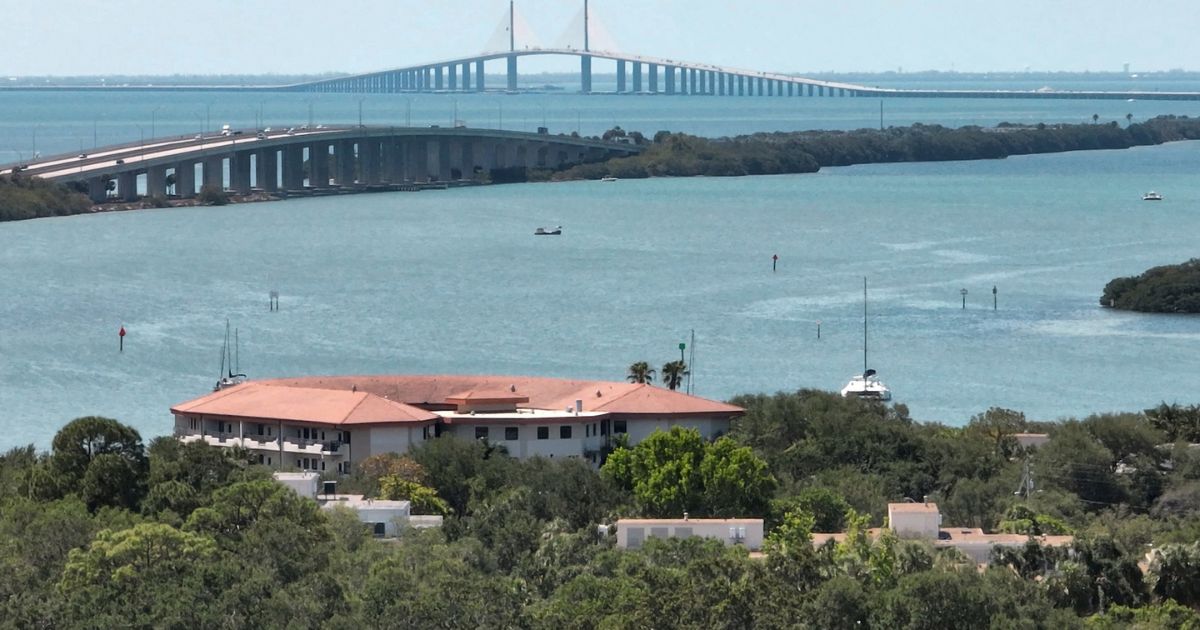Two hundred feet of seawall at Eckerd College will be converted into a “living shoreline” in early 2024, thanks to an additional $350,000 in funding from the State of Florida.
“The project, which began in 2021 with more than $150,000 in investment from the Tampa Bay Environmental Restoration Fund stewarded by the Tampa Bay Estuary Program, aims to replace a portion of the seawall near the Omega residence hall with 100 feet of gradually sloping coastline and 100 feet of tiered native plantings,” says Associate Professor of Environmental Studies Jesse Sherry, Ph.D.
“Having this funding will mean quite a few things,” Sherry explains. “This section of seawall takes all the energy from the waves and bounces it back into the water, so the living shoreline will be better for the local aquatic environment and the Tampa Bay area in general.
“It also allows us to raise our sidewalks in the area—protecting our campus from storm surge and high tides,” he continues.
“A year into working on the project with community partner Environmental Science Associates, the construction was revealed to cost almost twice the original estimates. The College sought a state appropriation through an official request that was championed by State Rep. Linda Chaney (R-District 61) and State Sen. Nick DiCeglie (R-District 18),” says Kelly Kirschner, Eckerd’s vice president and dean of the Division of Executive and Continuing Education. In June, Governor Ron DeSantis signed a budget allocating $350,000 toward funding the construction.
“We think it’s significant because when we contemplate the impact of sea level rise and storms like Hurricane Idalia—which caused incredible damage and challenges for neighborhoods and families—it is an example of how we can do things that mitigate this type of damage,” Kirschner says. “For our coastal campus, a vulnerable area, to have a pilot project that starts building toward a more resilient community, research and knowledge is a benefit.
“On top of fortifying the campus against sea level rise and adverse weather events, the shoreline project will act as a community example and living laboratory. Faculty already have committed to incorporating the construction and study of the impacts of the finished project into their curricula. Visiting Assistant Professor of Environmental Studies Peter Simard, Ph.D., also plans to study the impacts of the living shoreline on marine acoustics in the area,” Sherry says.
Construction is expected to commence early in the spring semester and continue for two months.



